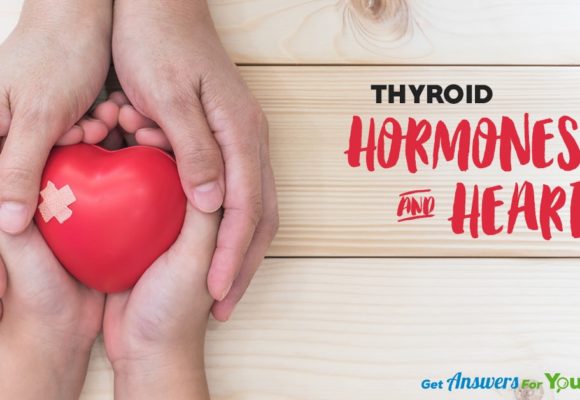1) Grab a FREE copy (Value $14.95) of one of my books Thyroid Symptom Overload
Just pay shipping $7.95 for any US orders. Or, if you want to pay full price plus shipping, order from Amazon :)
2) Take our Thyroid Quiz today and find out what "Thyroid Type" you have
This quiz will help you quickly discover where your symptoms are stemming from.
3) Join Our Thyroid Advocate Membership Site - Natural Thyroid Academy
FREE for a limited time. No credit card required.
4) Work with me and my team privately
Schedule your FREE 15 minute phone consultation and we can find out the best way to help you specifically.
Dealing with thyroid issues for a long time? Symptoms seem to be getting worse? It just might be something more than just a disruption in your hormones. It could be Graves’ Disease. Never heard of it? Here is all the information you need about; what it is, how it occurs, what are the symptoms and what you can do to help your symptoms.
Graves’ Disease-Understanding the Basics
Named after the scientist who first discovered it, Graves’ Disease is a condition where the thyroid gland becomes enlarged due to a toxic diffuse goiter. It is an autoimmune disease which takes place due to malfunctioning thyroid or other such case. It is also referred to as the exophthalmic goiter.
According to recent studies about how Graves’ disease takes place, research shows that it can occur due to an immune defect that is present among people with genetically malfunctioning thyroid gland, which leads to its excessive production of hormones. This causes the thyroid gland to become inflamed and enlarged.
Is it a serious cause of concern? As per research, if the disease is not recognized in due time, it can cause fatality as it directly harms the soft-tissues of the autoimmune system. One of the most common results is thyroid eye disease, which ultimately ends in vision loss. Hence the belief that Graves’ disease needs to be diagnosed and treated immediately.
What are the signs and symptoms of this disease? Here are some common and not so common signs that you may be suffering from Graves’ disease.
Signs and Symptoms
Research conducted by Graves’ disease & Thyroid Foundation show that Graves’ disease affects about 10 million people in United States alone, where the ratio of women to men is high. Even though the problem can take place at any age, people between the age group of 20’s to 40’s are more likely to suffer.
As mentioned above, Graves’ disease is a form of hyperthyroidism. Its symptoms include:
- Enlarged thyroid gland
- Fatigue and exhaustion
- Weight loss due to unexplained reasons
- Tremor in hands
- Bulging eyes
- Irritability and/or anxiety
- Perspiring too much and increase in heat sensitivity
- Sexual dysfunction like erectile dysfunction
- Change in hormones also causes change in menstrual cycle
- Occurrence of thick red skin on tops of feet or shins known as Graves’ dermopathy
- Palpitations
- Vision issues
- Problems with diabetes
- Muscular weakness
Graves’ ophthalmopathy manifests in about 30% of the people suffering from Graves’ disease. It causes inflammation of the immune system and other muscles and tissues of the body. Symptoms of this condition include puffy or reddened eyes, gritty or painful sensations in the eyes, light sensitivity, double vision and bulging eyes.
Some other obvious signs and symptoms for Graves’ disease include:
- Goiter: The enlargement of the thyroid gland where they thyroid becomes swollen and the neck looks like it has something protruding from it. Goiter can also cause coughing, difficulty in swallowing and sleep disruption.
- Eye Issues: Graves’s disease can lead to quite a few serious eye conditions. Tearing redness or gritty feeling in the eyes are mild cases whereas severe eye problems can be inflammation in the eye muscle and tissues, swelling and bulging.
- Skin Condition: One very obvious symptoms of Graves’ disease is thickening of skin over the feet or shins. This issue is known as pretibial myxedema. The skin can become pink and swelled up but only in the lower leg regions.
Is Graves’ disease really serious? What if it is not diagnosed in time? Here is what can happen
What are the Repercussions of Graves’ Disease?
Understand the idea that people who are already suffering from some kind of thyroid issue or from any autoimmune disease are more at risk of Graves’ disease. If you or your loved one has one of the following conditions than you can have Graves’ disease as well.
- Addison’s disease
- Type 1 diabetes
- Rheumatoid arthritis
- Lupus
- Celiac disease
- Pernicious anemia
- Vitiligo
But can Graves’ disease lead to other medical issues if not treated in time? These are the problems that can manifest because of the disease.
- Since heartbeat becomes irregular, that is palpitation occurs due to Graves’ disease, the patient is more susceptible to conditions like heart failure, stroke, blood clots and other heart problems
- Osteoporosis and thinning of bones can also take place
- Graves’ ophthalmopathy or Graves’ orbitopathy, conditions of the eye can also result
- If left for too long, Graves’ disease can lead to death
Women who are expecting and who have Graves’ disease need to make sure that their hyperthyroidism is managed well, otherwise it could affect their own health as well as the baby’s.
Treatment Options for Graves’ Disease
If you feel that you or your loved one is suffering from Graves’ disease, than you need to consult a medical health professional immediately. The doctor will run blood tests to first confirm hyperthyroidism and then see if Graves’ disease is also present. Thyroid scans and radioactive iodine uptake tests are common for confirmation of this problem. Once the presence has been observed, your doctor will check out the severity of the condition. Some treatment option for Graves’ disease include:
Antithyroid Medicines
These are drugs that help in the management of hormones produced by the thyroid gland. These mostly only work till they are taken and once the intake is stopped, the problem recurs. The severity of your condition would decide whether medicines are enough or not. Please consult your primary doctor.
Surgery
Sometimes doctors recommend surgery for Graves’ disease because people are either allergic to medications or unable to get the required cure. Doctors also suggest surgeries during pregnancy. These surgeries can include the removal of a goiter.
Radioactive Iodine
Radioactive iodine is a treatment that works by destroying all thyroid tissue cells and thus brings down the thyroid hormone levels. Only enough amount of tissue is left so that lower levels of hormone can be produced.
To conclude, it is essential that if you have a malfunctioning thyroid then you keep an eye for any kind of symptoms of the Graves’ disease. The sooner it is diagnosed, the less damage it is likely to cause. Your doctor can make sure that you are safe from all hazards when you get your thyroid checked regularly. So be sure to keep an eye on signs and symptoms of Graves’ disease.
References
- https://www.ncbi.nlm.nih.gov/pmc/articles/PMC3474632/
- https://www.endocrineweb.com/conditions/graves-disease/graves-disease-overview
- http://www.mayoclinic.org/diseases-conditions/graves-disease/symptoms-causes/dxc-20337218
- https://www.ncbi.nlm.nih.gov/pmc/articles/PMC149254/








